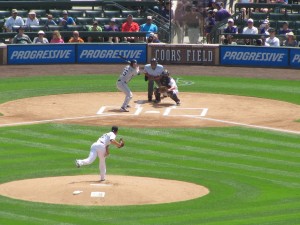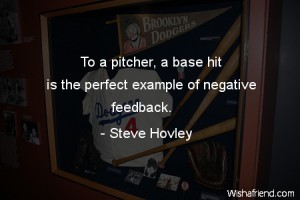
Spring is definitely here, perhaps this is not so evident in our temperamental weather, but by the fact that baseball season is back. In honour of that I wanted to share some connections to how being a student of the game is like learning in the classroom.
I look at baseball as a sport for all ages and genders. Everyone can play. In some ways, a baseball diamond could be the ultimate classroom with so much going on at anyone time in the stands, in the dugout, and on the field.
Baseball is a game of scenarios. There are constant situations to be thought through in every game and there are statistics kept from little league to the major leagues. Just think of all the other Math skills at play in the concession stands, ticket offices, and accounting/payroll departments. Math is an important part of baseball.
Baseball is a game of Physics. How a ball rotates from the pitchers hand towards home plate determines its trajectory. The angle and bat speed at which a player makes contact with a ball determines its flight duration and distance. Major League Baseball measures everything possible on the field that happens in a game, including ball rotation, pitch velocity, swing(bat speed), and field area covered in a program called Sabremetrics. I wrote this TED Ed lesson called Future of the game: Baseball latest statistical revolution to show how it is used.
Weather plays a role here too. Forecasts determine whether games can be squeezed in or postponed. Data from on-field temperature, and prevailing winds gets noted too. Imagine the engineering required to design the perfect outdoor ball park because no two seem to ever have the same design.
Baseball can be altered and adapted to suit the level of all its players. There is Kickball(soccer baseball), marshmallow baseball(played with a tennis racket and a bag of marshmallows), and Rounders. Some might even prefer the game of Cricket as it may be more familiar to their students than baseball. All of these adaptations have similar fundamentals and transferable skills.
Baseball is a team sport. No one can play all of the positions at once. It requires collaboration. Everyone plays a role whether in the field or waiting to bat. Baseball is a thinking game. Many of the lessons of life come from playing it. I mentioned Math and Physics before, but there are other areas that come in to play here too;
- Emotional- Players can get caught up by a moment, or when a mistake gets made. This can lead to other mistakes if focus required to make the next play. Baseball teaches its players to keep their minds on the game. It also shows students that mistakes are going to happen. How they recover from them is an important part of the game/lesson.
- Mental – With all of the statistics kept in baseball it is important for players to know what to do with the information. Processing on the fly and responding just like in the classroom comes from preparation aka practice. Players and students alike prepare for games/tests receiving coaching/instruction and next steps for improvement.

- Feedback – Whether playing baseball or learning in the classroom there is always feedback. Some is positive and some is negative. This can depend on something as simple as mindset, timing, and delivery. With students the risk of being kicked off the team is never on the table. There are no minor leagues in education. Teachers are in the room to help all of their students make contact with the ball and circle the bases with their learning. Regardless of the type of feedback teachers and coaches are there to instruct, identify talents, and encourage their students.
- When a player strikes out, there will be another chance to bat. When a player walks a batter or misses a throw, there will be another chance coming their way soon. The lesson is always be thinking and practising for the next opportunity whether it is in the classroom or on the field.
So as the players take to the field for the next umpteen months take some time to share this incredible game in your classroom. Take time to enjoy the Science, Math and chance to develop life strong habits of resilience and teamwork.

One thought on “Keep swinging for the fences”